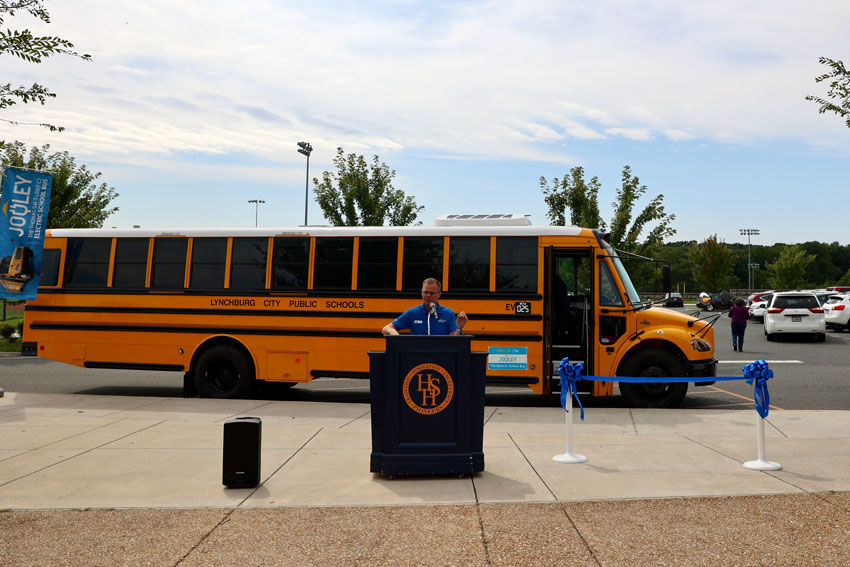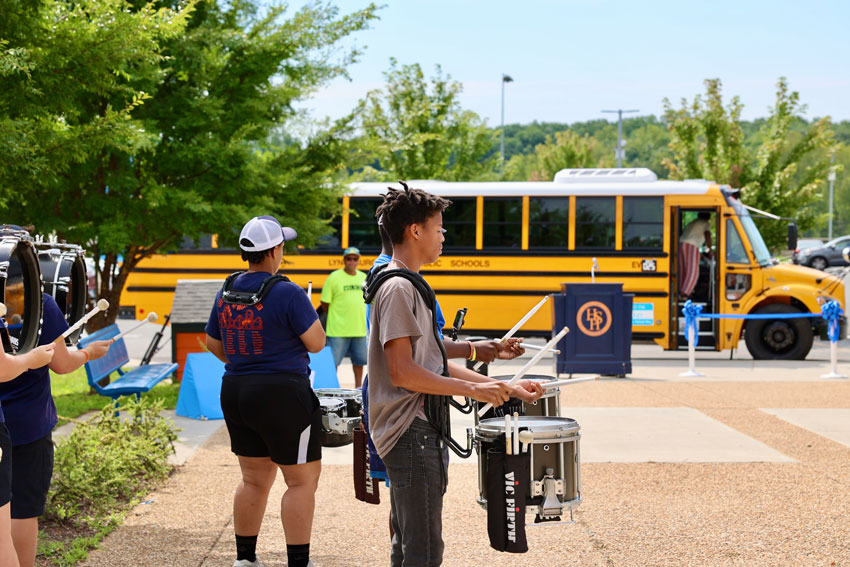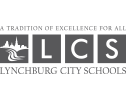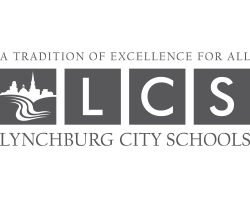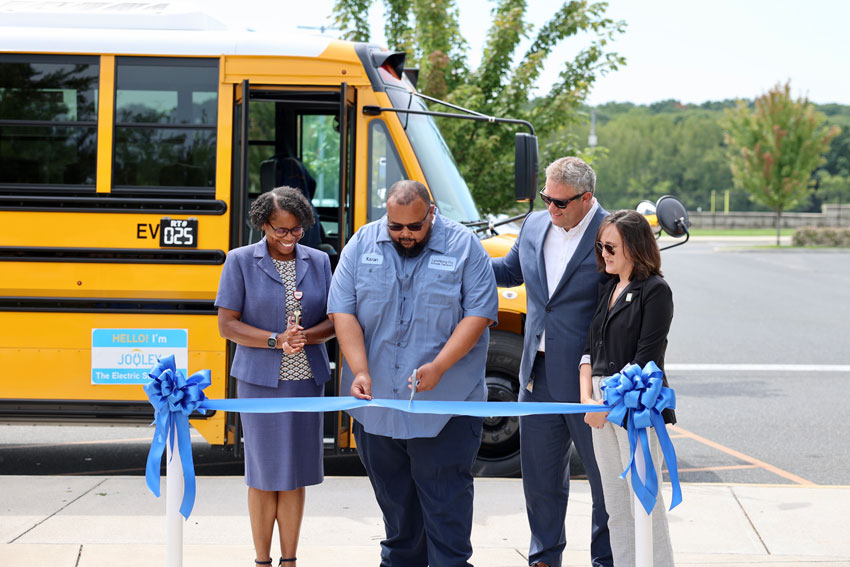
This fall, you may notice some shiny, new, and surprisingly quiet school buses on the roads. Lynchburg City Schools (LCS) acquired 25 electric school buses this fall, thanks to $9.8 million in federal funding. A monumental step toward the LCS commitment to increase environmental and economic sustainability across the division, the electric buses will reduce greenhouse gas emissions while providing cost savings.
“These buses will help move us into a greener, more sustainable future,” said LCS Director of Transportation Hope Watts. “They’ll help improve the environment for generations to come by taking diesel buses and pollutants off the road.”
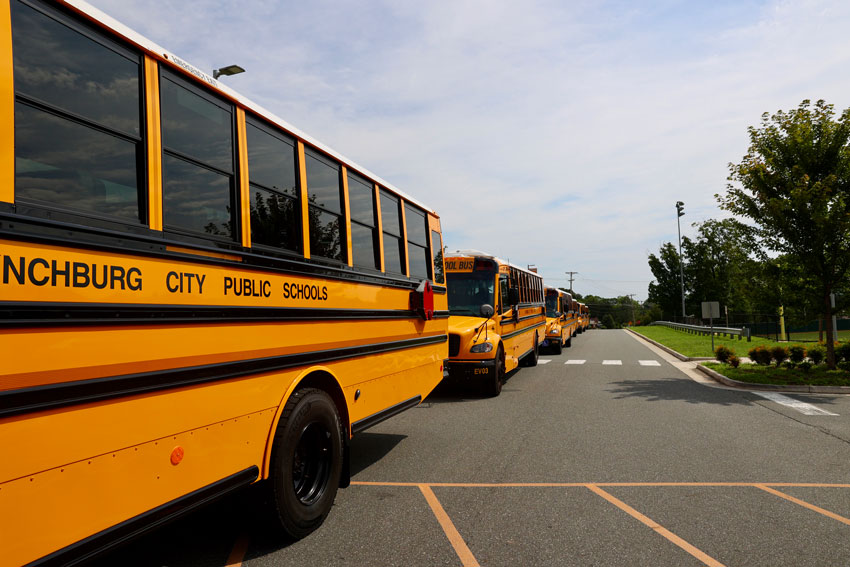
Lean, Green Cost-Cutting Machines
Replacing their diesel counterparts, the electric vehicles (EVs) make up about 40% of the LCS fleet. They’re not just environmentally friendly—they’re wallet-friendly, too, saving the division a net total of $125-$150 thousand a year on fuel combined after taking electricity costs into consideration. With fewer parts and fluids, they’re also cheaper and less wasteful to maintain year in and year out. Thanks to the Environmental Protection Agency’s (EPA) Clean School Bus Program and tax credits made possible by the federal Inflation Reduction Act (IRA), the vehicles and their charging stations won’t cost LCS anything.
“In addition to the positive environmental impacts of electric transportation, the financial return on investment can’t be understated. These new buses will allow us to save funds that can be allocated toward teaching and instruction,” said LCS Deputy Superintendent of Operations and Strategic Planning Reid Wodicka.
LCS received the highest number of electric buses in the state in 2022 under the EPA’s grant program. As divisions across the nation slowly incorporate EVs, this grant puts LCS ahead of the curve and makes the division a regional leader in sustainable transportation.
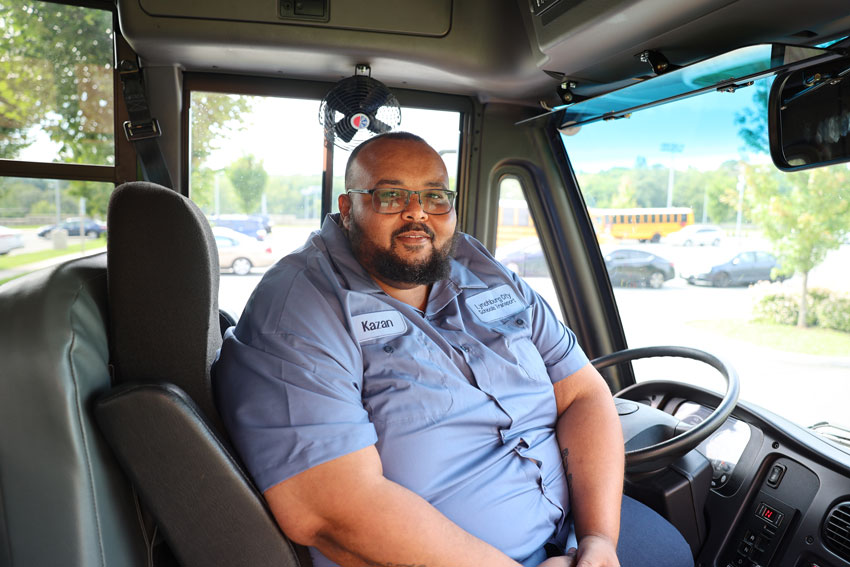
LCS auto serviceman and bus driver Kazan Johnson has been singing the electric buses’ praises since he first drove one last fall.
Making the Switch
As with any change, the new buses take some getting used to. Drivers are being trained on the EVs on a rolling basis, and most emerge singing their praises.
“If there’s anyone interested in electric buses, I say give them a chance. You will love them. I like my electric bus over diesel buses,” said LCS auto serviceman and bus driver Kazan Johnson.
Johnson, who’s been driving with LCS for 11 years, first sat behind the wheel of an electric bus in October 2023. Watts arranged for one electric bus to be delivered early from dealer Sonny Merryman in the fall in order to slowly start training bus drivers on the new vehicles. It became a regular member of the LCS fleet in December.
“I tell our drivers, ‘just try it.’ People can be hesitant to learn to drive a new type of bus, especially if they’ve been driving diesel for many years. But the drivers like them when they try them. The amenities make it a better experience,” Watts said.
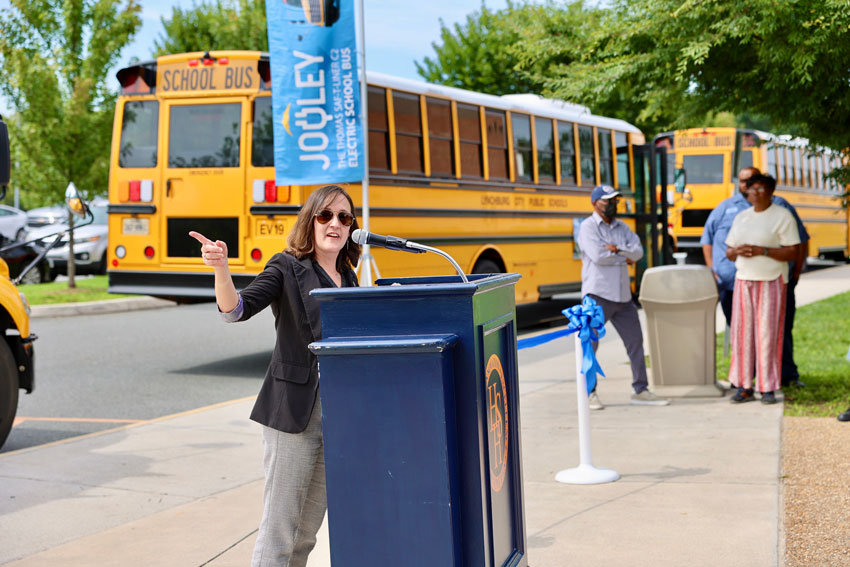
LCS Director of Transportation Hope Watts addresses guests at the ribbon-cutting ceremony.
Leveling Up
The new buses look virtually identical to the diesel models, but one difference is immediately apparent: the noise level. Electric buses run whisper-quiet, with none of the noise pollution of their diesel cousins. Drivers can communicate with passengers over the new vehicles’ PA systems without shouting over the roar of the engine, and students can enjoy more peaceful journeys to and from school.
The new models won’t sneak up on unsuspecting pedestrians or drivers on the road, either. They’re programmed with safety in mind to play a humming sound when driving at speeds below 20 miles per hour, alerting those nearby to their presence.
Another notable difference is the lack of toxic fumes emitted by the electric buses. By nature, EVs trump diesel vehicles in terms of their impacts on the health and safety of those who interact with them.
“The biggest things for me as a parent are air pollution and air quality. Putting little kids with sensitive lungs next to diesel engines emitting harsh fumes isn’t great for their health. Electric vehicles use cleaner technology and will have a positive impact on students,” said LCS parent Erik Nygaard.
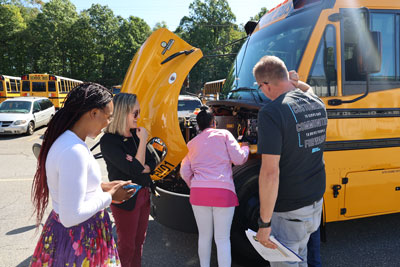
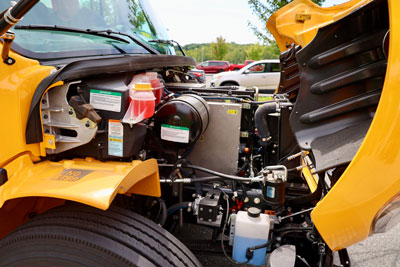
Powered by electricity rather than diesel, electric buses are less expensive to fuel and maintain than traditional buses.
Look closer, and you’ll find a host of features that further explain drivers’ affinity for the new buses. Each has a highly effective heating and cooling system, heated driver’s seats and mirrors for cold weather, an AM/FM radio, and blind-spot-free interior cameras for safety. Each seat folds into an integrated child seat, which can be used for Pre-K or disabled passengers or removed and placed on any other bus to accommodate students across the division.
Because there are key differences from diesel vehicles, Lynchburg Fire Department first responders have been trained on emergency procedures to follow in the event of an accident involving an electric bus. Thorough training paired with state-of-the-art features make for an overall safer and more comfortable experience for drivers and students alike.
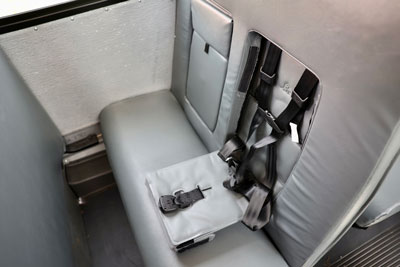
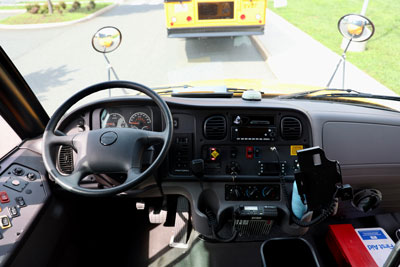
Left: Each seat folds into an integrated child seat, which can be used for Pre-K or disabled passengers. Right: The controls on the new buses look virtually identical to those of diesel models, facilitating an easy transition for drivers.
Caring for our Community
“My son is excited for the chance to ride an electric bus. I have an EV at home, and we talk about it all the time,” Nygaard said. “These buses are a cheaper and healthier solution for our city. I think this is a really positive development.”
Students and bus drivers aren’t the only ones who will benefit from this transition. Reducing diesel emissions will benefit the community at large by keeping pollutants out of neighborhoods across the city.
“We have an obligation to teach students about civic responsibility. By prioritizing sustainable infrastructure—from electric buses to forest gardens and tree plantings at our schools—we’re showing students what it looks like to invest in our local community and consider the social impacts of our choices,” Wodicka said.
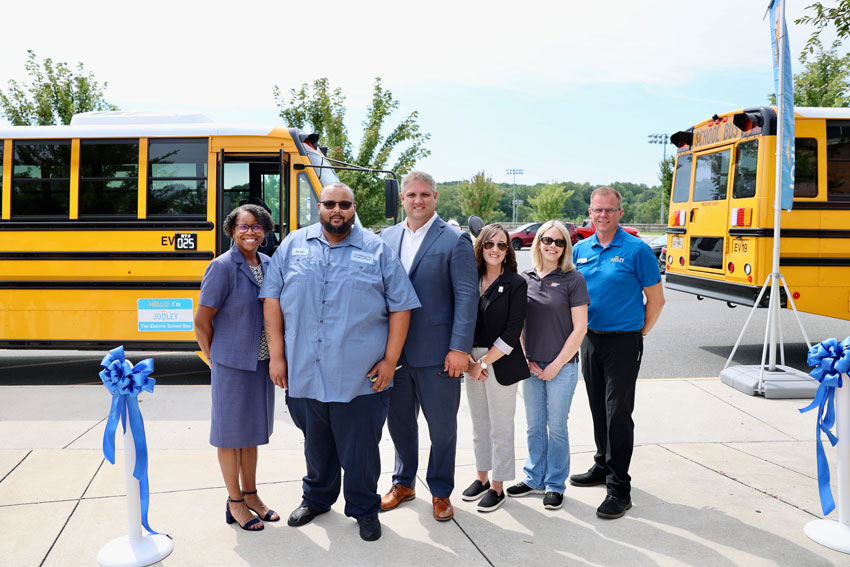
Left to right: LCS Superintendent Crystal Edwards, LCS auto serviceman and bus driver Kazan Johnson, LCS Deputy Superintendent of Operations and Strategic Planning Reid Wodicka, LCS Director of Transportation Hope Watts, American Electric Power key account manager Hope Marks, and electric bus dealership Sonny Merryman President and CEO Caley Edgerly.
The Future is Sustainable
The EVs are part of the LCS commitment to increase sustainability across the board. Sometimes, this entails less flashy changes: This summer, new air-conditioning (AC) systems were installed at E. C. Glass High School and Dunbar Middle School, and LED lighting replaced less efficient systems at Perrymont and Paul Munro elementary schools.
But swaps like these make a huge difference in terms of the division’s energy use and cost savings. They also enhance learning experiences for teachers and students alike. As with electric buses, green solutions are often more comfortable than traditional ones—high-efficiency AC cools buildings better, and LED lights are brighter. They’re also less costly over time, saving money that can be spent instead on instruction.
“We want to make sure we’re providing quality learning environments for our students. That commitment goes hand in hand with our commitment to sustainability,” Wodicka said.
This is only the beginning of the division’s sustainability journey. As electric buses are adopted by more and more school divisions and charging infrastructure pops up to accommodate them, LCS plans to eventually transition its fleet to include at least 50% electric vehicles. The arrival of these first 25 EVs represents a significant milestone in the division’s path toward a more sustainable future, the impacts of which will be felt for generations to come.
